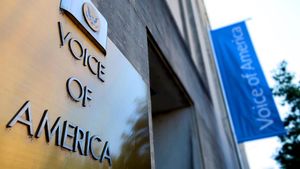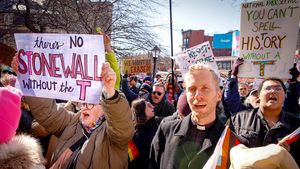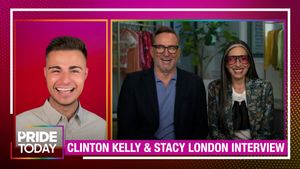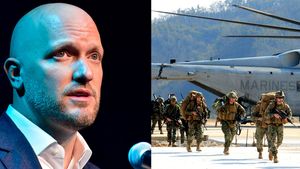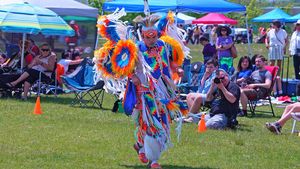What do other homosexuals think about these so-called "queens"?
The narrator of KQED's The Rejected poses this question to three members of the Mattachine Society, one of the earliest gay rights organizations in the United States.
Debuting on September 11, 1961, The Rejected was notable for not only being the first ever televised documentary on homosexuality ever aired in America, but for its inclusion of homosexuals in the conversation. This conversation often took place between ostensibly straight experts on the subject rather than with the subjects themselves, who are often blamed for their "condition." The Rejected takes a progressive -- for the time -- view, often placing the onus on society and its treatment of homosexuals.
Mattachine President Harold Call, executive secretary Donald Lucas, and treasurer Les Fisher appeared publicly as homosexuals -- essentially donning a Scarlet Gay, if you will -- in hopes of debunking gay stereotypes, including that of the "queen."
"We think the swish, or the queen, represents a small minority within the homosexual grouping," Call responds. "These people in most cases are not even liked by their homosexual brethren because they have perhaps rejected themselves and they feel society has rejected them."
Call calls for a change in laws and restrictions that put the lives and livelihood of gay people in danger, while Lucas emphasized the number and ubiquity of homosexuals living in America, not just clustered within large cities.
Though groundbreaking for its day, The Rejected is still a product of its time -- it was filmed eight years before Stonewall, 12 before the American Psychiatric Association declassified homosexuality as a mental disorder. To wit, Call asks Fisher -- who was previously married -- if marriage was good for homosexuals. Not in the sense that we've become familiar with and on which the Supreme Court will soon decide, but as a "cover-up."
"A good many homosexual people would not be homosexual had they had a heterosexual experience earlier in life," Fisher begins, "but I certainly wouldn't recommend it as a cure for homosexuality."
Lucas (who chain-smokes the entire time, like he just dropped in from a scene in Mad Men) has a little fun with Fisher's comment, asking if that might bring about a "challenge" for some girls to "change a homosexual." He barely gets it out without smiling, but when Call tries to turn it into a valid response -- he just can't and neither can I:

Yas, queen, YAS!
The Rejected also features interviews with Dr. Karl Bowman of the APA, Bishop James Pike, and Rabbi Alvin Fine to offer a religious perspective, along with anthropologist Margaret Mead, who had her fair share of secret lesbian affairs. But over 50 years later, it's Call's closing remarks that resonate most deeply:
"The homosexual is no different than anyone else except perhaps in his choice of a love object. He desires the same kind of right to live his life freely and without interference, to pursue his happiness as a responsible citizen and to receive the benefits of constitutional rights, due process and protection of the law that all of us enjoy."
You can watch The Rejected in its entirety here.
Les Fabian Brathwaite -- so-called "queen."


















































